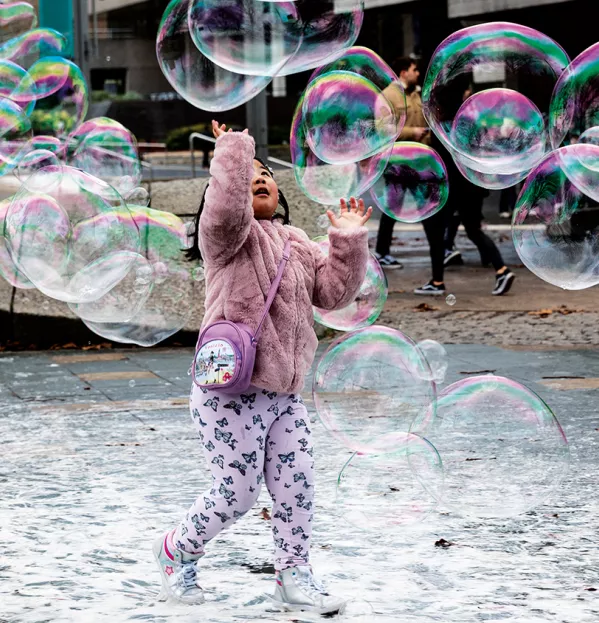As with all things, Covid has brought positives and negatives to our large nursery. While “bubbles” have created an extra level of complexity and logistics for resources and spaces, they have also become warm, friendly groups that our children are thriving in. They know each other and their adults well and, in some situations, behave like families. This has been so important for our children in a time of great uncertainty.
Yet some friendship groups have, unfortunately, been split across groupings, causing upset for those children affected.
Our senior staff have been limited in their interactions and in the time they can spend with the children, as a positive test would close multiple groups. Some of our children transitioned into a nursery they had never been inside, without their parents, to practitioners they did not know. This goes against our beliefs in a child-centred approach but was outside our control.
So, we embraced the guidance to maximise the time we spent in our natural environments around our community. We began by spending full days in our gardens before restarting our weekly forest sessions, and expanding these to include weekly beach sessions, too. We are lucky to have access to a variety of natural environments and practitioners who are highly motivated, flexible and knowledgeable of the benefits of spending time in nature; we have noticed increases in the children’s physical, cognitive and language development as well as their wellbeing and involvement levels.
Covid: Supporting early years pupils
However, we know this is not the case for many early years settings, given their location, access, staffing, time and money. Training and support are needed to ensure that all children can access natural environments and experience the positives that playing and interacting with the landscape bring to their health, wellbeing and development.
Our rooms, at the time of writing, are unrecognisable from early 2020. Before, we operated a free-flow play system, where the children had agency and choice to independently choose where, with whom and for how long to play, always moving easily between indoors and the gardens.
The bubble groupings have put a stop to this. There are now five separate groups, each with appointed adults and rooms; the free flow of movement between indoors and outdoors is not always possible.
Spaces are limited in size and resources - the heavy cleaning regime has meant reducing or removing resources. Our gym hall is now devoted to storage and resting of resources and furniture, instead of climbing, yoga, gymnastics and games. There is continual negotiation over resources and waiting for them to clear quarantine.
There are parents who have never been inside our building, as the day starts and finishes in the garden. We sent them videos of our rooms but this is a poor substitute for first-hand experience.
Our staff have adapted quickly to ever-changing guidance, but stresses and uncertainty have been created as councils scramble to write guidance after each government announcement. Staff across the country are forced to make judgements when guidance does not provide the depth needed, leading to variations in approach and action.
We hope for a return to our free-flowing nursery but question if this will happen even next year. We plan to continue promoting and ensuring access to nature for all our children, as we know the benefits for both children and staff.
Mhairi Wallace is a nursery teacher at Queensferry Nursery School in Edinburgh





